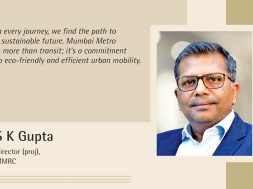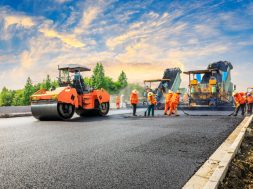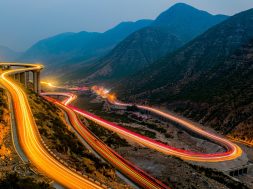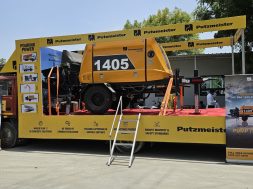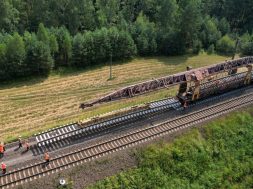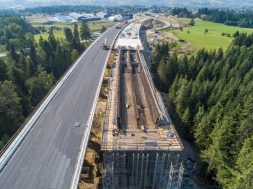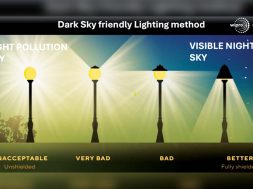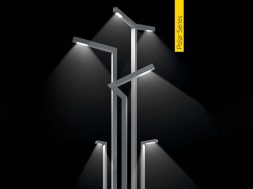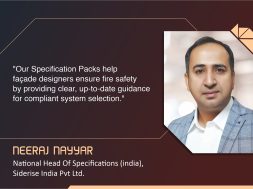Mumbai Metro envisions a greener tomorrow
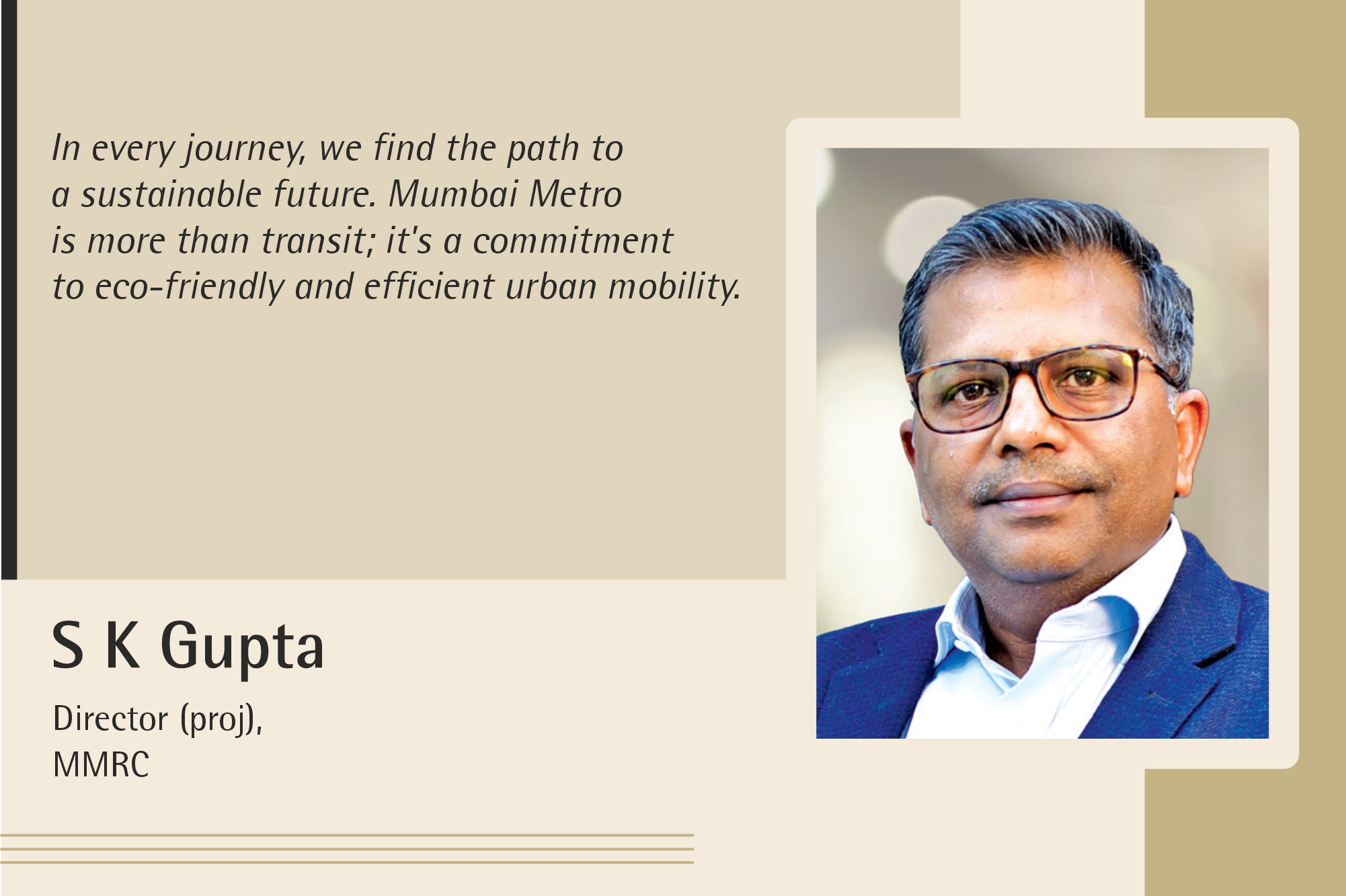
In the bustling cityscape of Mumbai, where millions of lives intersect daily, the need for a robust and sustainable transportation system is more pressing than ever.
S K Gupta, Director (Project), MMRC, the Director of Projects at the Mumbai Metro Rail Corporation (MMRC), feels privileged to be part of a transformative journey that seeks to redefine how Mumbaikars traverse their dynamic metropolis.
Paving the green path
At the core of our mission is a commitment to reducing our carbon footprint and embracing eco-friendly practices. The Metro-3 project, a flagship initiative, has been registered with the United Nations Framework Convention on Climate Change (UNFCCC) under MRTS PoA – 9863 since December 2017. The implications are profound; it is estimated that Metro-3 will annually reduce CO2 emissions by a staggering 2.61 lakh tonnes. This reduction is not just a statistic; it signifies a meaningful step towards a more sustainable and environmentally conscious transportation system.
Our approach extends beyond the tracks and stations. We have meticulously adopted eco-friendly measures across our infrastructure, including deploying energy-efficient fixtures such as LEDs and CFLs at stations and worksites. Our commitment to water conservation is reflected in the installation of water-saving faucets. Incorporating solar panels at elevated stations and depots is a testament to our dedication to harnessing renewable energy sources.
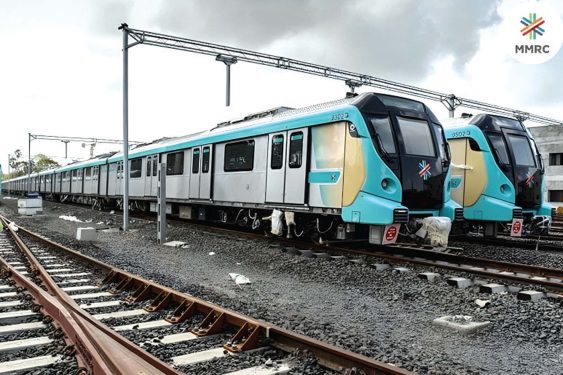
A significant milestone in our environmental endeavours is the Sariput Nagar Receiving Substation (RSS), which was certified as the first platinum-rated building under the IGBC Green Service Building Rating across metro authorities in India. This achievement underscores our unwavering commitment to sustainable practices in our operations.
Transforming travel dynamics
With its burgeoning population, Mumbai demands a transportation solution that is efficient and scalable to meet the needs of its ever-expanding urban sprawl. The Metro-3 project, once fully operational, is poised to revolutionise travel for Mumbaikars.
The key lies in its strategic alignment, connecting crucial originations and destinations along a north-south corridor. With a projected capacity to accommodate around 1.4-1.6 million passengers daily, Metro-3 promises reduced travel times, decreased air and noise pollution, and an overall enhancement in the safety and security of citizens.
This underground corridor integrates major residential and commercial areas, connecting six significant business districts, 30 educational institutes, hospitals, and recreational centres. Beyond that, it seamlessly links with existing transportation hubs, including Central and Western Railway stations, State bus depots, and other metro lines, creating a comprehensive and integrated transit network. Furthermore, it provides vital connectivity to both terminals of the existing airport, ensuring that the impact of this project reverberates across the city’s population of 3 million.
The design capacity of Metro-3 is noteworthy, boasting the ability to handle a traffic capacity of 72,000 passengers per hour per direction (PHPDT). With eight-car trains featuring spacious coaches capable of accommodating approximately 2,400 passengers in standing and seated positions, it sets a new standard for metro lines in India.
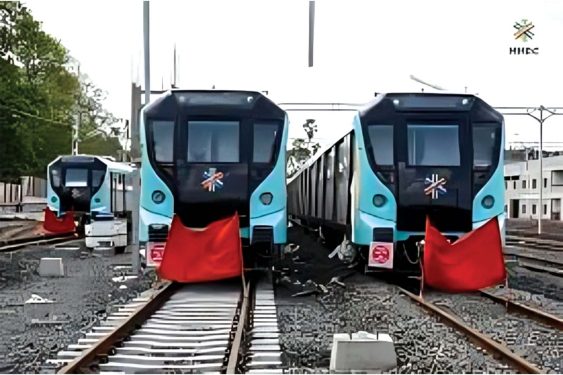
Embracing the digital age
In an era dominated by technological advancements, the Mumbai Metro is actively embracing smart technologies to elevate the efficiency and dependability of its mass transit system. Implementing communications-based Train control (CBTC) paired with unattended train operation (UTO) ensures precise control and seamless operations.
Automatic Train Supervision (ATS) is linked to live passenger displays and announcements at stations and trains, enhancing the overall passenger experience. An Automatic Fare Collection System (AFC) streamlines ticketing processes, while Building Management Systems (BMS) and Supervisory Control and Data Acquisition (SCADA) contribute to efficient infrastructure management.
Integrating 3D Building Information Modelling (BIM) ensures a comprehensive understanding of assets and infrastructure. Combined with enterprise asset management, this allows for proactive maintenance strategies, moving from periodic maintenance to a more predictive approach. Video analytics fortify security systems, creating a safe and secure passenger environment.
Moreover, our approach extends to adopting the National Common Mobility Card (NCMC) for seamless transit experiences, aligning with the “one nation, one card” initiative. The acceptance of the Unified Payments Interface (UPI) payment system adds to the ease of travel, making the Mumbai Metro a technologically advanced and passenger-centric transit system.
The road ahead
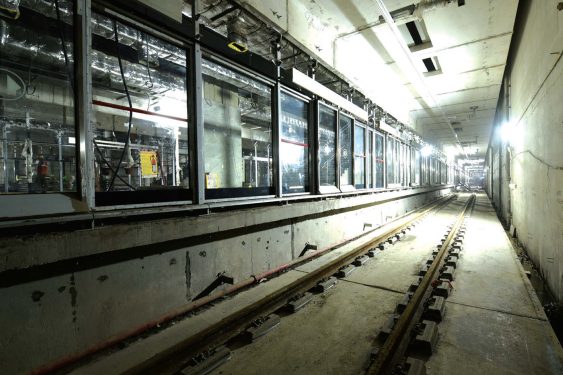
The journey towards a more connected and accessible Mumbai doesn’t end with Metro-3. We are actively working on expanding our network to meet the city’s evolving needs.
One such project is the 2.5 km extension of Metro Line-3 towards Navy Nagar, including a station at Dr. Homi Bhabha Road near the Tata Institute of Fundamental Research (TIFR). The Detailed Project Report (DPR) is being prepared, with RITES Limited as the appointed consultant.
Additionally, the expansion of Metro Line-11 is envisioned as a southern extension of Line 4, connecting Gaimukh to Wadala [Bhakti Park]. This extension, spanning 12.774 km with 10 planned stations, holds the promise of further integrating various parts of the city. The responsibility for implementing Metro Line-11 was transferred to MMRC by the Government of Maharashtra in January 2023.
The DPR, crafted in 2018, is currently under review by MMRC. These expansions underscore our commitment to continually enhancing Mumbai’s public transportation infrastructure, ensuring that it remains robust, efficient, and capable of meeting the city’s growing needs.
Under the visionary leadership of MMRC, the Mumbai Metro is not merely a transportation system but a catalyst for sustainable urban living. From environmental conservation to transformative transit solutions and the infusion of smart technologies, we are navigating the future with a commitment to excellence, efficiency, and the well-being of the city and its people. As we embark on this transformative journey, we invite all Mumbaikars to join us in shaping our beloved city’s more connected, sustainable, and technologically advanced future.
For more info visit: https://mmrcl.com/
Cookie Consent
We use cookies to personalize your experience. By continuing to visit this website you agree to our Terms & Conditions, Privacy Policy and Cookie Policy.
